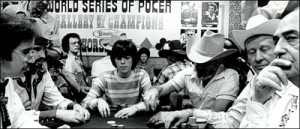Before Stuey Ungar went on to win three World Series of Poker Championships, he was a world class gin player – maybe the best that ever lived. Ungar was so good he had trouble getting action, which is why he eventually took on a suspected cheat. During the match, Ungar’s bodyguard informed him that his opponent was indeed cheating. Ungar said, “I know he’s cheating. Don’t worry. I’ll beat him anyway.” And he did.
But few people would knowingly play in a rigged game, let alone win. This is especially true in poker and investing. Both are zero sum games, where winners are offset by losers. And in both games, information is paramount.
 Any edge we have is small, and predicated on our ability to process incomplete information with speed and accuracy. When our opponents cheat, they do it by obtaining information we can’t get, effectively eliminating our edge. In poker, a cheat may know our cards or know the value of the cards yet to come. In investing, a cheat may know about a pending company takeover or financial information yet to be announced.
Any edge we have is small, and predicated on our ability to process incomplete information with speed and accuracy. When our opponents cheat, they do it by obtaining information we can’t get, effectively eliminating our edge. In poker, a cheat may know our cards or know the value of the cards yet to come. In investing, a cheat may know about a pending company takeover or financial information yet to be announced.
Legal Information Gathering:
In poker, we can process the odds of a hand winning against a probable range of our opponents’ hands. We can study our opponents’ betting patterns for clues. Our power to observe a twitching finger or a pulsing vein can mean the difference between winning and losing. Daniel Negreanu is known for his acumen at deriving value from available information. He verbally pokes and prods his opponents, gauging every eye movement and voice inflection until he knows exactly what they are holding. But this type of information gathering is legal. Poker players have the same opportunities — albeit different abilities — to exploit it.
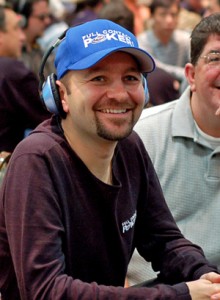 The same is true for investors. Investors can study a company’s pipeline. They can assess the value of contracts a company has signed or the drugs it has in clinical trials to calculate the odds of increased earnings. A myriad of publicly available statistics can unveil clues to trends in everything from consumer spending to advertising sales. Many investors study the behavior of stock and option prices, which — like betting patterns — can uncover meaningful moves. Investors can even listen to conference calls and listen for tells.
The same is true for investors. Investors can study a company’s pipeline. They can assess the value of contracts a company has signed or the drugs it has in clinical trials to calculate the odds of increased earnings. A myriad of publicly available statistics can unveil clues to trends in everything from consumer spending to advertising sales. Many investors study the behavior of stock and option prices, which — like betting patterns — can uncover meaningful moves. Investors can even listen to conference calls and listen for tells.
But the premise behind poker and investing is that we all have equal access to information. The playing field is level. If you’re slow to process information or are just too clueless to know what’s important — you will be a loser over the long run.
Regulated Information in poker and investing:
There are rules in poker to insure equal access to information. A good example is the “show one, show all” rule. If Player A intentionally shows Player B his cards, Player A will be forced to show his cards to the entire table. This rule always applies even if Player A’s cards were mucked or the hand is over. Otherwise, Player B would have an unfair advantage — for he and he alone would know what cards Player B may (or may not) play in the future.
Along the same lines, if a dealer inadvertently flashes a card, the card is shown to the entire table and taken out of play. That way all the players know what the card is and have the opportunity to recalculate the odds without that card in play.
In investing, there is also a “show one, show all rule.” Material information about a company or security has to be shared publicly and simultaneously. For instance, every shareholder is able to learn about a company’s quarterly financial status at roughly the same time. Earnings announcement are timed either before or after a trading day. This is done to insure any minute time differences in access to the data can’t be used to get an unfair trading advantage.
Any material changes during a quarter also have to be shared in a timely — and simultaneous — manner. This might include lawsuits, plant outages, key acquisitions, changes in a company’s leadership, etc.
Of course there are less subtle information rules. In poker, players are not allowed to collude – either by sharing information or by rigging the betting action. A player isn’t allowed to know what cards his opponents are holding. It would be like shooting fish in a barrel. And any game where this was known to occur would be shunned like no other.
The same is true in investing. An investment bank handling a potential merger or acquisition can’t share or use that information before it is publicly disclosed. Company insiders can’t share material financial information with key investing insiders prior to its public dissemination.
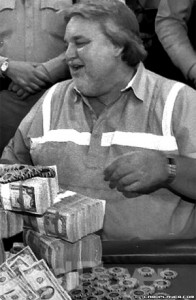 Unfortunately we have good examples of blatant infractions in both poker and investing.
Unfortunately we have good examples of blatant infractions in both poker and investing.
Insiders at the online poker sites, Absolute Poker and UltimateBet had “superuser” accounts. These accounts gave them access to player hole card information, allowing them to scam millions of dollars from unsuspecting players. The scandals were uncovered and breaches corrected in 2008. Some of the money was returned to the affected players. The companies even renamed their joint holdings to Cereus Network. But even so, the sites have failed to regain player confidence. Traffic at Cereus dropped another 31% in the past year.
Insider Trading Scandal:
There have been a number of high-profile insider scandals. Martha Stewart did time for trading on inside information. Michael Miken and Ivan Boesky were the poster children for insider trading scandals in the ’80s. But there may be more yet to come.
Last week, the FBI recently raided the offices of a number of hedge funds. Subpoenas were issued to even more fund managers and research firms. Illegal insider trading has been alleged.
The scale of the investigation had a number of pundits speculating the government must be overreaching the interpretation of the insider trading. After all, these large companies couldn’t be breaking run-of-the mill laws. (Just like I’m sure that many in the poker world couldn’t believe a former World Series of Poker Champion would out-and-out cheat).
Business TV entertainers commentators defended the type of investigation and research investors should legally be able to conduct. They were outraged that the government would potentially harass investment pros just for being savvy researchers. It would be like busting Negreanu for needling his opponents.
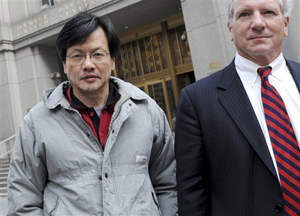 But as it turns out, the government’s allegations appear to center on blatant cheating — not grey-zone interpretations. There has been only one arrest to date. But in the case against Don Chu, it is alleged that his research firm got access and shared a company’s financial data, before its regulated, public release.
But as it turns out, the government’s allegations appear to center on blatant cheating — not grey-zone interpretations. There has been only one arrest to date. But in the case against Don Chu, it is alleged that his research firm got access and shared a company’s financial data, before its regulated, public release.
But even though these charges now appear to be cut and dry, a number of people are putting forth an argument to legalize all forms of insider trading — or in effect — legalizing superuser investing.
Legalizing Superuser Investing:
Imagine an online poker company that openly allowed superuser accounts. Maybe it would try to make an argument that it would be better for all players if a few insiders and pros had access to perfect information. The game would be more efficient. There would be less bad beats. Outsiders would benefit because they could follow the lead of the insiders, benefiting from their sloppy seconds. Insane? That’s apparently what some people are proposing in the investment world.
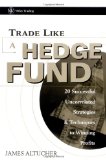
Now I love James Altucher like a brother — OK, like a brother who I’ve never met but who I stalk via his brilliantly written blog and twitter account. He and I have a few things in common. Our undergraduate degrees are in technological fields. We both have graduate degrees but both failed to finish our PhDs. He was once addicted to online chess. I was once addicted to online poker. We have spent time ample time talking to both hookers and company directors. We both now make a living in the investment world. Admittedly, he has a few more books under his belt than I do.
But as a hedge fund manager, Altucher probably has more of an insider’s bias. As someone who is (and writes for) a retail investor, I have an outsider’s bias. On Wednesday, Altucher was on CNBC taking a position in support of legalized insider trading. His basic argument is one of efficiency. His arguments are outlined in this 2009 article.
If the efficiency argument were applied to poker, it would focus on increasing the probability that the best hand would win. If superuser poker accounts were legal, there would be fewer bad beats. After all, a superuser couldn’t be bluffed out of a pot by a lesser hand. The best hand would win more often. In investing, superusers would have the same effect. Security prices would be more accurate because the superusers would have better, more timely, information about their “true” value.
Altucher is not alone in this argument. Dean emeritus Henry Manne of the George Mason University School of Law has wanted to legalize insider trading for years. Nobel Prize-winning economist Milton Friedman once said, “You want more insider trading, not less. You want to give the people most likely to have knowledge about deficiencies of the company an incentive to make the public aware of that.” Donald Boudreaux, of the Future of Freedom Foundation wrote, “Perhaps the greatest benefit of insider trading is that it causes equity prices to disclose all relevant information as quickly as possible.”
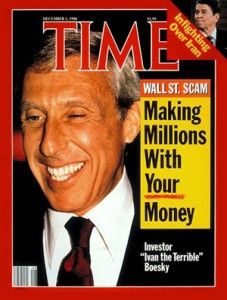 But is that what you want? A more efficiently priced market where the lion’s share of the gains go to a select group of insiders? A poker player might rather see fewer bad beats — but not if it meant giving up the chance to become a winning poker player. Against an opponent with hole card information, his profits would turn to losses. Reading a hand like Daniel Negreanu or bluffing like Gus Hansen would be immaterial in a world with legal insider superuser accounts. Skill wouldn’t matter — everything would come down to whether you were an insider with superuser access.
But is that what you want? A more efficiently priced market where the lion’s share of the gains go to a select group of insiders? A poker player might rather see fewer bad beats — but not if it meant giving up the chance to become a winning poker player. Against an opponent with hole card information, his profits would turn to losses. Reading a hand like Daniel Negreanu or bluffing like Gus Hansen would be immaterial in a world with legal insider superuser accounts. Skill wouldn’t matter — everything would come down to whether you were an insider with superuser access.
Outsiders just wouldn’t play. And if they did, they couldn’t stay in the game long. Think trading volume is low now?
It might even start a race to the bottom. Would firms that used to rely on illegal insider information have to resort to bribery for the edge? Maybe if insiders paid enough, they could get a company to take a temporary dive — a la the Chicago Black Sox. What would the likes of Ivan Boesky do to gain an edge in a world where insider trading was legal?
If the market has any chance it all, it better hope that it does everything in its powers to unrig the system and pray it has better luck than Cereus Network.
But legalize insider trading? Game over.
Photo Notes:
Stu Ungar at the 1980 World Series of Poker, taken by Ulvis Alberts
Me and Stu’s daughter Stefanie, taken in 2005
Daniel Negreanu, taken by me in 2006
Russ Hamilton, 1994 World Series of Poker Champion implicated in the UltimateBet superuser scandal, taken by CardPlayer Magazine
Don Ching Trang Chu, taken by Louis Lanzano/AP
Time Magazine cover featuring Ivan Boesky, December 1, 1986
